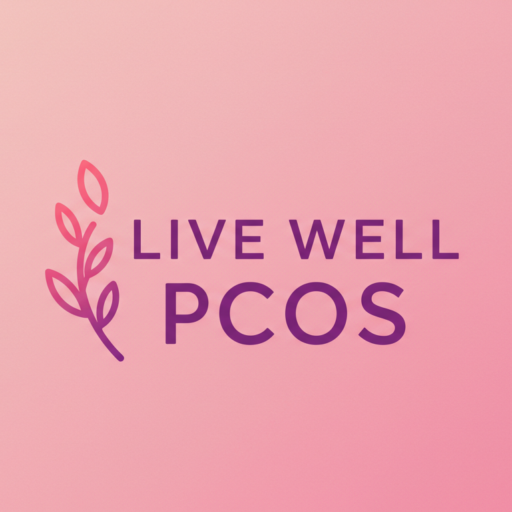Welcome to the Live Well PCOS blog! I am so excited to get this launched. I was diagnosed with polycystic ovarian syndrome(PCOS) four years ago, and I’ve been on a journey since then to heal my body from the inside out. I can’t wait to bring all of you along with me and build an amazing community of women who can support each other.
When I was 17 years old, I was struggling with weight gain, growing a beard on my face, going through rounds and rounds of acne medicines, and only having a period every 40 days. My mom, who also has PCOS, encouraged me to make an appointment with a gynecologist to see if I had inherited it from her. She made the appointment for me, and I begged for it not to be a man. Alas, she made a mistake, and I went in to see a male gynecologist. When he asked why I had come in, I explained what had been going on and that I suspected I had PCOS. He was immediately very dismissive and told me I didn’t need a PCOS diagnosis unless I was trying to have children, but he’d “do it anyway.” He then prescribed me birth control to help with period cramps and sent me on my way. I returned to the doctor’s office to get my blood drawn for a lab and get an ultrasound, and a week later, I received a short email that said, “Based off your ultrasound and labs you meet the criteria for PCOS. Dr. [redacted] recommends you to keep taking the birth control pills as prescribed. If you have any further questions, feel free to call.”
To me, that email was zero percent helpful. I was glad to have an official diagnosis, but what the hell was I going to do about it? I’d go on to learn that this is a common experience for women with PCOS. Oftentimes, women are just told to take birth control and worry about it when they’re having children. This approach does not take into account all the different ways women’s lives are affected by PCOS, and many women need help navigating more issues than just fertility.
After feeling lost and unhelped by the doctor, I started doing what I do best: Googling. What I found on the internet was infinitely more helpful than what my gynecologist had said. I learned about PCOS affecting hormone levels, and the problems I’d had with my health began to make sense. My weight gain came from insulin resistance issues. The beard I’d been growing was because I had high levels of androgens, causing excess testosterone production. My acne was caused by those hormonal issues, and that’s why nothing was working. The long cycles I’d had were because my eggs were becoming cysts rather than ovulating. Suddenly, everything I’d been dealing with had one source, and maybe some of these problems were solvable.
Unfortunately, I discovered in my research that there was no cure for PCOS, and I once again felt defeated. As I doom scrolled over my sadness, I started seeing videos from other women with PCOS. All my Googling had a great side effect – the algorithm brought PCOS information to me. I was learning about eating habits, exercise habits, supplements, and so much other information that had made it’s way to me. I had discovered this community of women and doctors who were helping each other learn about ways to deal with PCOS symptoms, and I realized it was possible to help my body reverse my symptoms.
Now, I know this community exists, but I could never find one central place for women with PCOS to call home. My dream is that Live Well PCOS can become a place for that community to live. We can interact with, support, and learn from each other.

